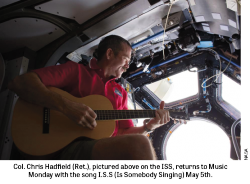 It is no secret that governments and educational bureaucracies for many years now have been resorting to the reduction and even elimination of music programs in order to cut costs in a way that is not perceived by the general public as weakening public education. At the same time there is an ever-growing abundance of research indicating enormous benefits to school-age students from active participation in music study and performance. These facts notwithstanding, the gulf, between the incontrovertible evidence as to the benefits of participation in music and the perceptions and understanding of the general public, politicians and education bureaucrats, continues to widen.
It is no secret that governments and educational bureaucracies for many years now have been resorting to the reduction and even elimination of music programs in order to cut costs in a way that is not perceived by the general public as weakening public education. At the same time there is an ever-growing abundance of research indicating enormous benefits to school-age students from active participation in music study and performance. These facts notwithstanding, the gulf, between the incontrovertible evidence as to the benefits of participation in music and the perceptions and understanding of the general public, politicians and education bureaucrats, continues to widen.
By the early 1990s educational programs nationwide were becoming so threatened that in 1992 representatives of 20 organizations came together to share ideas to improve the state of music education in Canada and form the Coalition for Music Education in Canada. It quickly began working with parents and other concerned citizens to address concerns about music in schools.
Late in April I spoke to Holly Nimmons, executive director of the Coalition for Music Education, beginning by asking why education system bureaucrats and politicians continue to fly in the face of the evidence for the value of music as part of education.
Typically, she said, the erosion or elimination of school music programs is done as a way of saving money and balancing the budget. It is a short-term, stop-gap solution which has long-term consequences in the lives of students. Music programs transform lives, but at the same time, have no measurable cash value. Because the learning of music and musical skills is sequential, reducing or eliminating the learning of music at one stage of education makes it difficult or impossible to pick it up later, effectively putting an end to the life-transforming effects that could have been possible for the students affected by these program cuts.
Part of the disconnect between the research and the actual “delivery of programs,” Nimmons suggested, may originate in the misconception that the raison d’être of music programs is to produce professional musicians, when their real purpose is to produce, in a way that no other discipline can, creative problem solvers with highly developed analytical, verbal and mathematical skills.
So there appears to be not only a wall of ignorance but also chronic misunderstanding of the role and purpose of music in education, which together allow for its being perceived as so specialized as to be irrelevant - or at least non-essential - to the education of the rising generation.
How, I asked, does the Coalition go about advocating for music education in the face of this situation?
“Education of the public is the central task,” she says. So the Coalition conducts research on the state of music education, makes its message available to people on its website, and connects with other organizations which share its objectives, such as MusiCounts, Music Canada and others.
A recent example of this sort of collaboration was a statement released jointly just weeks ago by the Coalition, MusiCounts and Music Canada, encouraging the Vancouver Board of Education to reconsider a decision to eliminate certain instrumental music programs. That decision, Nimmons told me, has already been reversed.
One such major annual initiative, central to the Coalition’s mission, will take place this year on Monday, May 5. This is the annual Music Monday Celebration. Launched in 2005 by the Coalition for Music Education, Music Monday is the world’s largest single event dedicated to raising awareness of music education.
Nimmons was quick to point out that the event raises awareness, excitement and commitment to music education at both the national and the local level. Nationally there will be a webcast, available live at noon, EDT, but the focus of the webcast will be the regional events in ten cities across Canada from Gander to Whitehorse, representing music education from each region. This live showcase will include performances by school groups and local musicians, messages from prominent Canadian musicians, politicians and leaders, and inspiration and encouragement from local youth, parents and industry advocates.
Some very influential voices will be heard supporting the cause, such as David Suzuki and Col. Chris Hadfield, the former commander of the International Space Station. In fact, Hadfield participated in last year’s Music Monday from the International Space Station, singing “I.S.S. (Is Somebody Singing),” which he co-wrote with Barenaked Ladies’ Ed Robertson. This year’s event will conclude with a synchronized nationwide performance of I.S.S. with Chris Hadfield, now back on planet Earth, participating, and led by Bramwell Tovey, the conductor of the Vancouver Symphony Orchestra.
The initiative has also attracted considerable financial support from many different sources, not the least of which is TD Bank, which has donated in excess of $50,000 to this year’s Music Monday. With a proven track record of support for music and for community-building initiatives, Nimmons told me, TD has been a supporter of the Coalition in the past, but this year’s contribution is particularly significant.
“Music Monday will celebrate the best in music education, showing what is possible,” Nimmons says, “not only for those schools currently fortunate enough to have excellent music programs but also for those schools that are less fortunate.” The aim is to motivate people everywhere to take action to support the implementation of effective music education programs in the province or territory in which they live.
The long-term goal of the Coalition, Nimmons points out, is to build a critical mass of people who recognize the value of music education in the public elementary and secondary schools. A central focus of this goal is the engagement of young people, the voters, leaders and decision-makers of tomorrow. With a million participants in last year’s Music Monday and, with any luck, even more this year, the Coalition is well on its way to achieving what it has set out to do.
So, wherever you are at noon on Monday, May 5, whether it be at the office, at home or at school, go to musicmonday.ca and follow the link to the webcast. We can all begin to support the much-needed revitalization of music education, simply by connecting with others who share our conviction.
Co-founder of The WholeNote, flutist and music teacher Allan Pulker can be reached at allan@thewholenote.com



